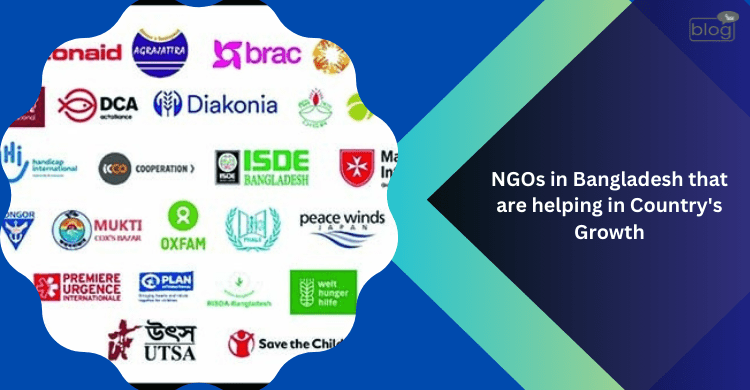Non-Governmental Organizations (NGOs) play a vital role in fostering profitable development and social progress in Bangladesh. This South Asian nation has faced problems like prpverty and natural disasters, and other challenges. Still, a different array of NGOs is making significant strides in addressing these issues and contributing to the country’s overall growth. Here are some NGOs in a brief discussion :
BRAC (Bangladesh Rural Advancement Committee):
BRAC was innovated in 1972, it is one of the largest NGOs in the world. Its covers various approach like education, healthcare, microfinance, and community development.
BRAC’s interventions have been instrumental in reducing poverty, enhancing maternal and child health, and promoting entrepreneurship in rural areas.
Grameen Bank :
Grameen Bank was founded by Nobel laureate Muhammad Yunus. The Grameen Bank is notorious for its microcredit and microfinance enterprise. By giving small loans to impoverished individuals, especially women, Grameen Bank has empowered numerous people to start small businesses, break the cycle of poverty, and contribute to the nation’s economic growth.
ASA (Association for Social Advancement) :
ASA is another leading microfinance institution in Bangladesh. It has made it easier for people who have less money to use financial services, allowing them to do jobs that make money. This makes their lives better and helps the economic grow.
Prothom Alo Trust :
This trust is associated with the popular Bangladeshi newspaper called Prothom Alo, which focuses on promoting education, healthcare, and social development. They give literacy to depressed scholars, support healthcare programs, and promote enterprises aimed at social upliftment.
Friendship :
Operating in some of the most remote and disaster-prone regions of Bangladesh, Friendship delivers healthcare, education, and disaster relief services. By addressing the conditions of insulated communities, fellowship helps alleviate the impact of natural disasters and supports sustainable development.
Dhaka Ahsania Mission :
This organization has been active in healthcare, education, and social development since 1958. Its systems cover a broad diapason of areas, from medicine rehabilitation to vocational training, contributing to the overall growth and well-being of the nation.
JAAGO Foundation :
The JAAGO Foundation primarily focuses on enhancing the quality of education in underserved areas. By setting up seminaries and providing digital access to deprived scholars, they aren’t only enhancing educational openings but also preparing proficient manpower for the country’s upcoming growth.
SEEDS (Social, Environmental, and Economic Development Society) :
SEEDS concentrates on sustainable development and environmental conservation. Their work includes reforestation exertions, renewable energy projects, and the creation of sustainable agricultural practices, all contributing to the country’s long-term growth.
TMSS (Thengamara Mohila Sabuj Sangha) :
This association empowers women through economic and social development programs. By furnishing training and support, TMSS helps women become self-sufficient and active contributors to the nation’s economic growth.
These NGOs illustrate the cooperative spirit and fidelity demanded to drive Bangladesh’s growth. They work actively to address the country’s most burning issues, from poverty, healthcare to education also environmental sustainability. The collaborative sweat of these associations plays a vital role in propelling Bangladesh forward, making it a testament to the positive impact that NGOs can have on a nation’s development. As Bangladesh continues to grow and evolve, these NGOs will remain essential consorts in the country’s expedition towards a brighter future.
For more content, Click here.
Writer
Shihab Shahriar Sporsho
Intern at Content Writing Department
YSSE

